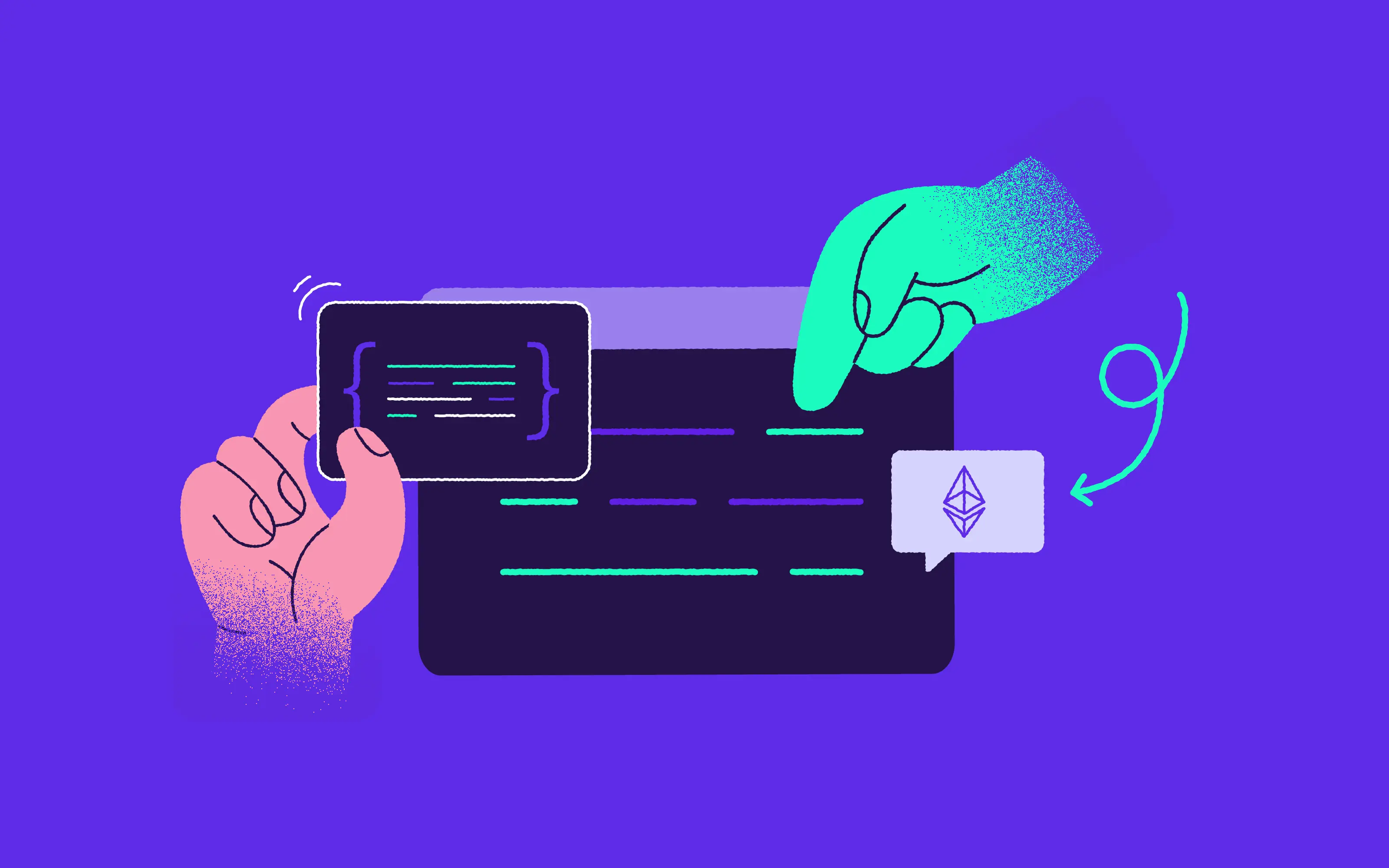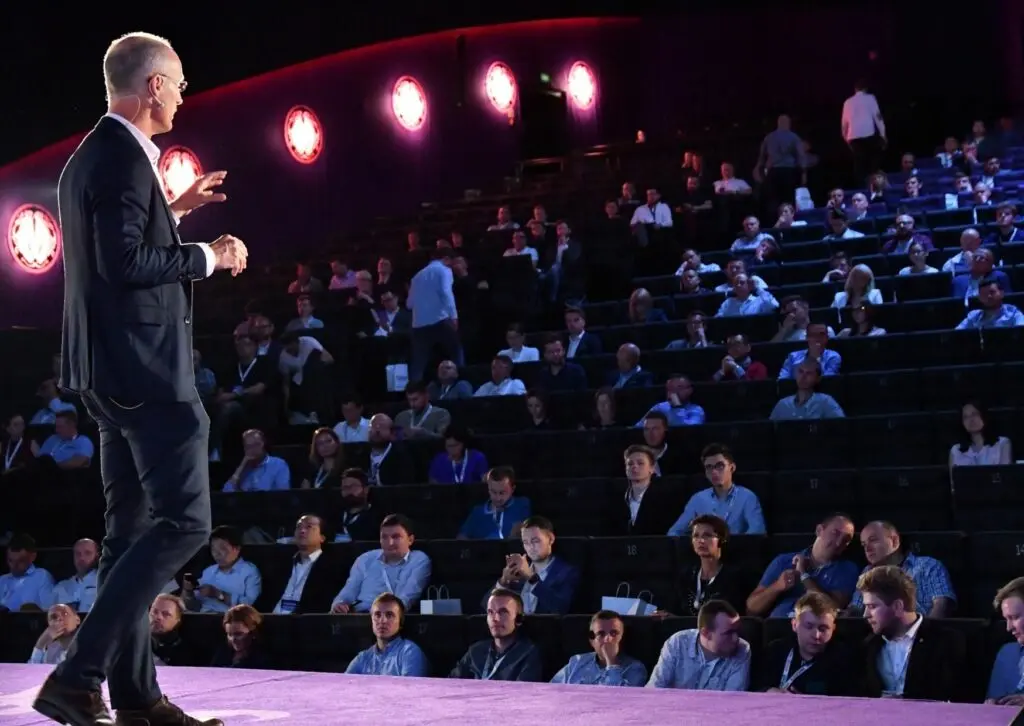
Yesterday and today we had the pleasure of taking part in the Warsaw Cryptocurrency World Expo, which brought together 1400 crypto and blockchain enthusiasts and more than thirty big names in the field, covering subjects such as NFTs, cryptocurrency, DeFi and the metaverse. Here’s a brief summary of just some of the exciting topics covered and the new things we learnt.
Poland as a blockchain hub
The opening keynote speech was given by Tom Kopera from The Blockchain Ventures Hub which facilitates collaboration between blockchain experts, founders and developers and supports them with fundraising. Also matches developers with blockchain projects which require development support, acts as a legal advisory and supports charities.
Tom gave an interesting insight into the blockchain scene in Poland:
- We have many committed founders and ideas in the country. There is certainly a lot of potential.
- We have many developers (The 10Clouds Delivery Team consists of more than 160 specialists 😉) . Poland is actually famous for its developers.
- At the same time, many projects are being built in isolation. Founders are left trying to fundraise in order to build their product rather than collaborating with others.
- Many of the projects are unprofessionally managed due to the inexperience of staff.
- There is a lack of local capital - perhaps linked to a lack of metrics and inability to assess the investments.
Blockchain as a force for freedom
Miko Matsumura, General Partner at Gumi Cryptos Capital, spoke about freedom, which is currently a pressing topic which needs to be treated with sensitivity. It’s ignorant to say that blockchain fixes huge problems, but it can go some way to helping establish a level of individual freedom.
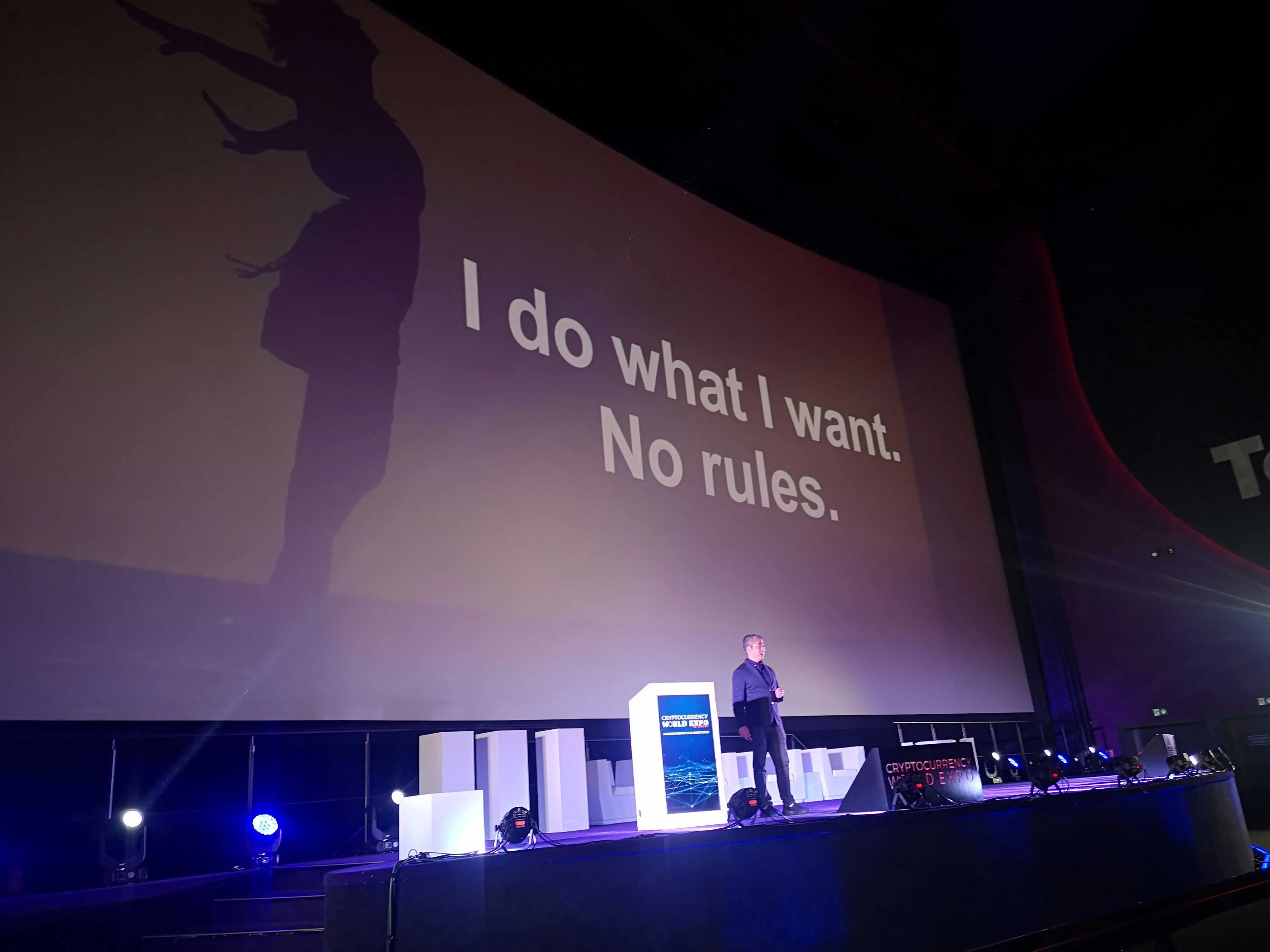
Blockchain solves the problems that existing institutions have failed to solve
When Vitalik Buterin, founder of Ethereum stated ‘We make the rules,’ this symbolized the creation of a new type of rule set. Why is this important? It’s because it has shown us that existing institutions have failed.
One of the reasons why the current internet is struggling is due to the concept of hyper-adversaries. The blockchain infrastructure can handle such hyper-adversaries.
Privacy is something that can be a serious concern which blockchain can solve. And Bitcoin in particular has proven to be particularly strong and difficult to penetrate.
Big Tech is failing us. Mark Zuckerberg no longer wants to run a company called Facebook, he has rebranded to ‘Meta’. We’re seeing this definitive move of the big players into blockchain.
Metacoven said crypto is a new America, the place where you go when you don't have a lot of options and you want to be free.
Today we are left with two ideas of freedom:
- Individuals do what they want
- Groups can create rules
The dichotomy between those ideas of freedom can be solved by the idea of blockchain. If there is something you don't like - you can fork it and go. This is the new freedom of blockchain.
We have an incredibly exciting future. This is the world we have chosen and maybe we can make it a better place with our blockchain-based experiments!
Miko, at 10Clouds we agree with this statement 100%.
Liquid carbon credits and sustainable finance
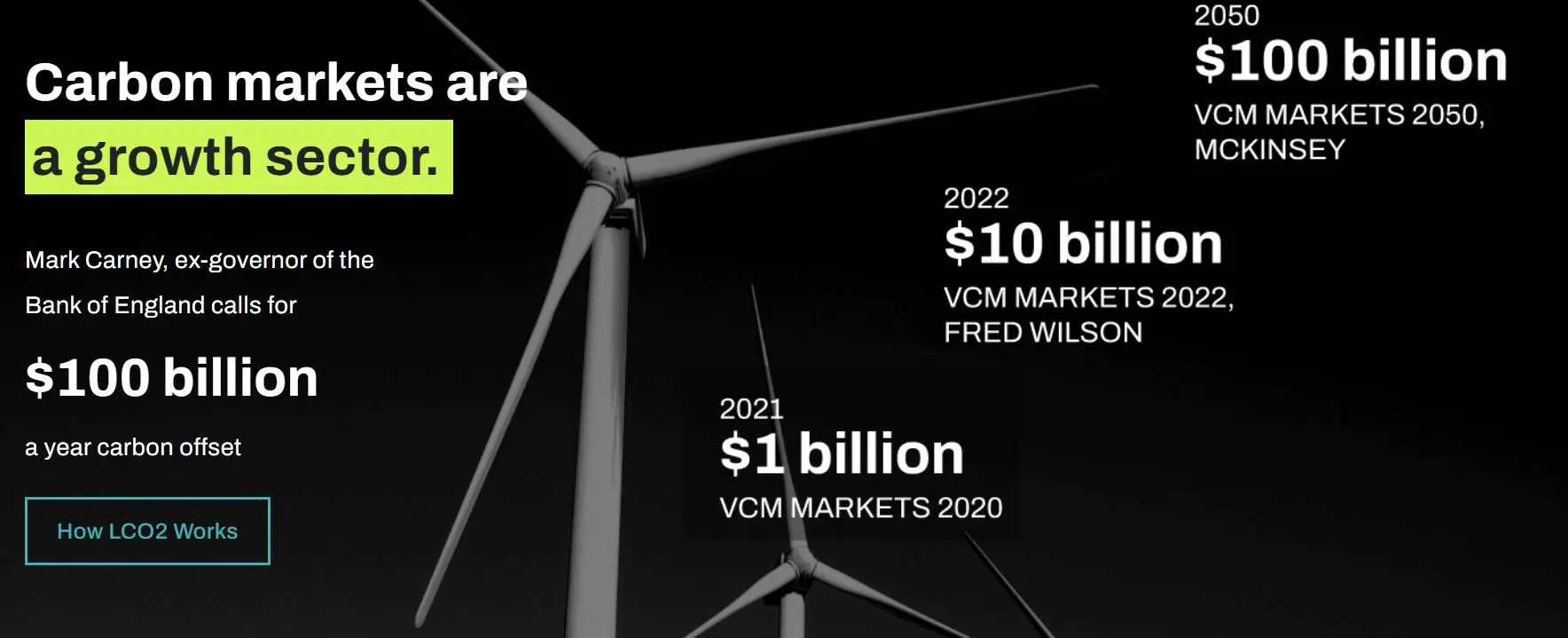
Did you know that carbon and crypto can go hand in hand?
Ransu Salovaara, CEO at Likvidi talked about LCO2 Tokens, which are sourced from regenerative farming and forests. Each credit is equivalent to one tonne of carbon removed from the atmosphere. Offsetting with LCO2 restores balance to the environment and supports our vital ecosystems.
A green finance platform to trade and manage DeFi compatible tokenized carbon credits. Trade, hold or retire LCO2 for a rapid, positive impact on the planet.
Investment Strategies in crypto
Can we still earn money on crypto? Or has the heyday of crypto already passed? There were many different outlooks on these two questions.
Marcin Szydłowski from Mike Satoshi believes that we’re seeing aflat performance of the bitcoin market meaning that it’s difficult to extrapolate any long-term trends.
Kamil Jarzombek from StarTerra says that we need 5-7 years until blockchains will start solving more problems and go mainstream. At this point there will be much wider adoption and big projects will be created that we will use on a daily basis.
Other viewpoints that were voiced by the panel, were that regulations are currently still somewhat of an impediment on the market.
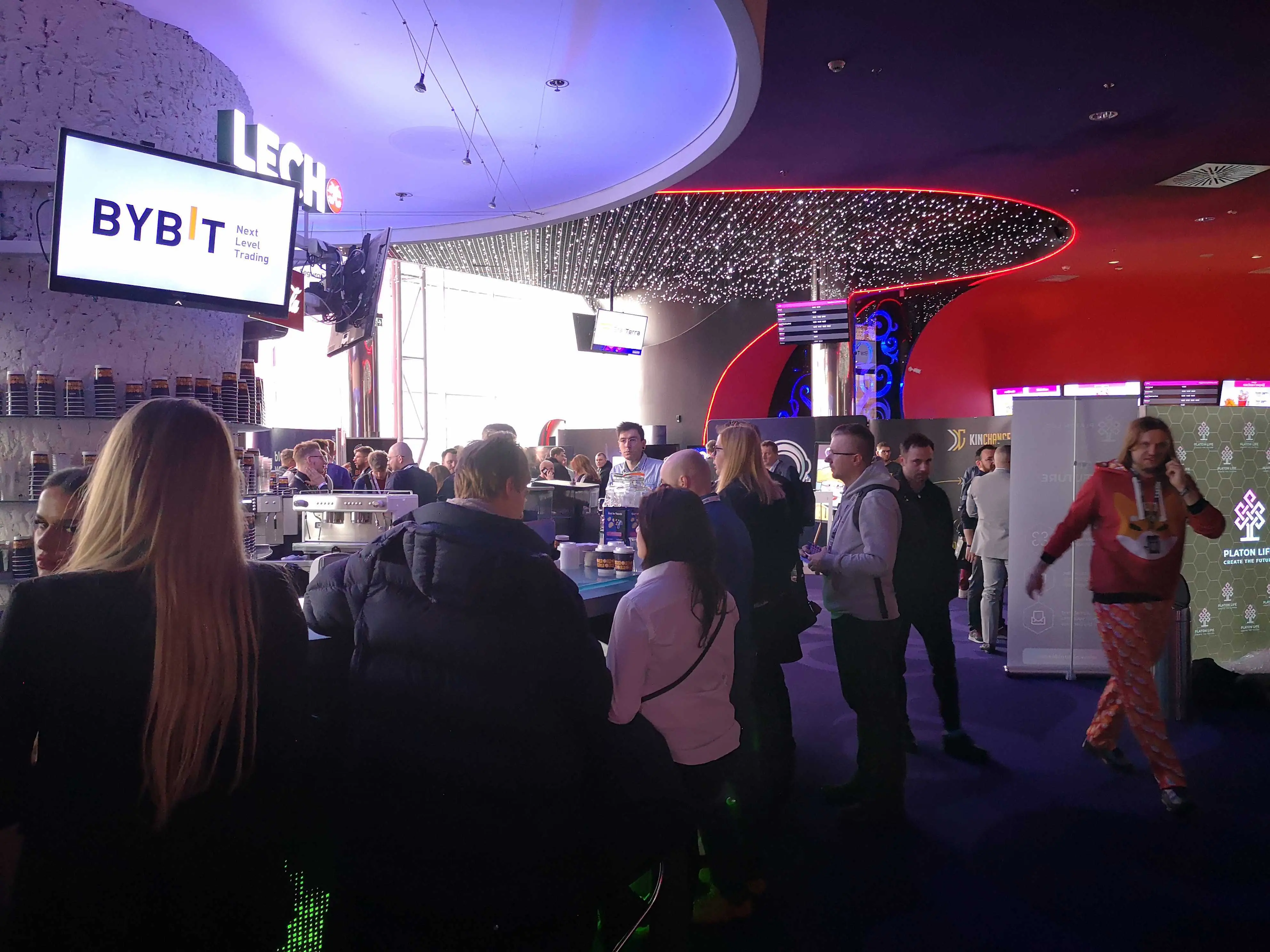
Advice for new investors from panel experts
- Dollar-cost-averaging (DCA) is a good idea, as it’s based on what you can afford.
- Ethereum and blockchain should form the core of your BitCoin Wallet, and Polkadot and Solana are also useful for diversifying your portfolio.
- Companies that mine for silver and gold are worth investing in.
- Constant trading is usually what loses you a lot of money. It’s best to leave your money in the market for at least a few weeks and observe your progress.
Cryptocurrency in business
Sławomir Śmiarowski from Tokenex is focused on delivering cryptocurrencies to everyday business.
He has observed that the historic Bitcoin rises were accompanied by a significant increase in users.
He also talked about ‘social exclusion’ which is prevalent in crypto. There are many people who still don’t grasp how it works. While 32% of US-based SMEs already accept cryptocurrencies as payment, for many it’s still a completely untapped market. There’s a deficit of trust, a deficit of need, and a deficit of information. There’s still no conscious will to invest in cryptocurrencies. Companies don’t know how to handle crypto from a legal and accounting point of view.
But what are the key benefits of using crypto for businesses?
- Crypto can reduce currency rate risk
- The speed of crypto currencies means that many transactions can happen on the spot
- Banking procedures for international payments are growing ever more difficult. Cryptocurrencies can be a great facilitator here, as they reduce volatility
- It also means that SMEs can diversity their wallets
Does the establishment country define the success of a blockchain project?
Dorota Zabłocka from 3 Dots law firm spoke about doing your market research into the target audience and also fully understanding the regulatory implications of setting up your business in a given part of the world. She gave a few examples:
- If you start your business in the Virgin Islands or Caymans, you’re likely not to own your own license.
- Dubai is known for its wealth and the generosity of the tax system. But in order to be an actual taxed resident, you have to stay there usually for a minimum of 6 months.
- Switzerland is expensive and licensing is a pretty lengthy process.
It’s not ideal to be limited to one territorial area. It’s worth contacting regulators, lawyers and tax advisors around the world.
Round table discussion - NFTs and what the future holds on the other side of the bubble
What is the relationship between NFTs and the Metaverse?
Sergiu Draganus: Usually it’s described as a centralized environment, quite dystopian in nature, with no control on the user side. This is fairly far from the truth.
It is all digital experiences, regardless of the technology that they are served on. One interesting example is the author deciding to tokenize the characters in a book. The token holders could then influence what happened to the characters. Metaverse is all about new ways of interacting with each other.
NFTs are the bricks of the new experiences that are being created in the Metaverse. They offer ownership and the ability to transfer value.
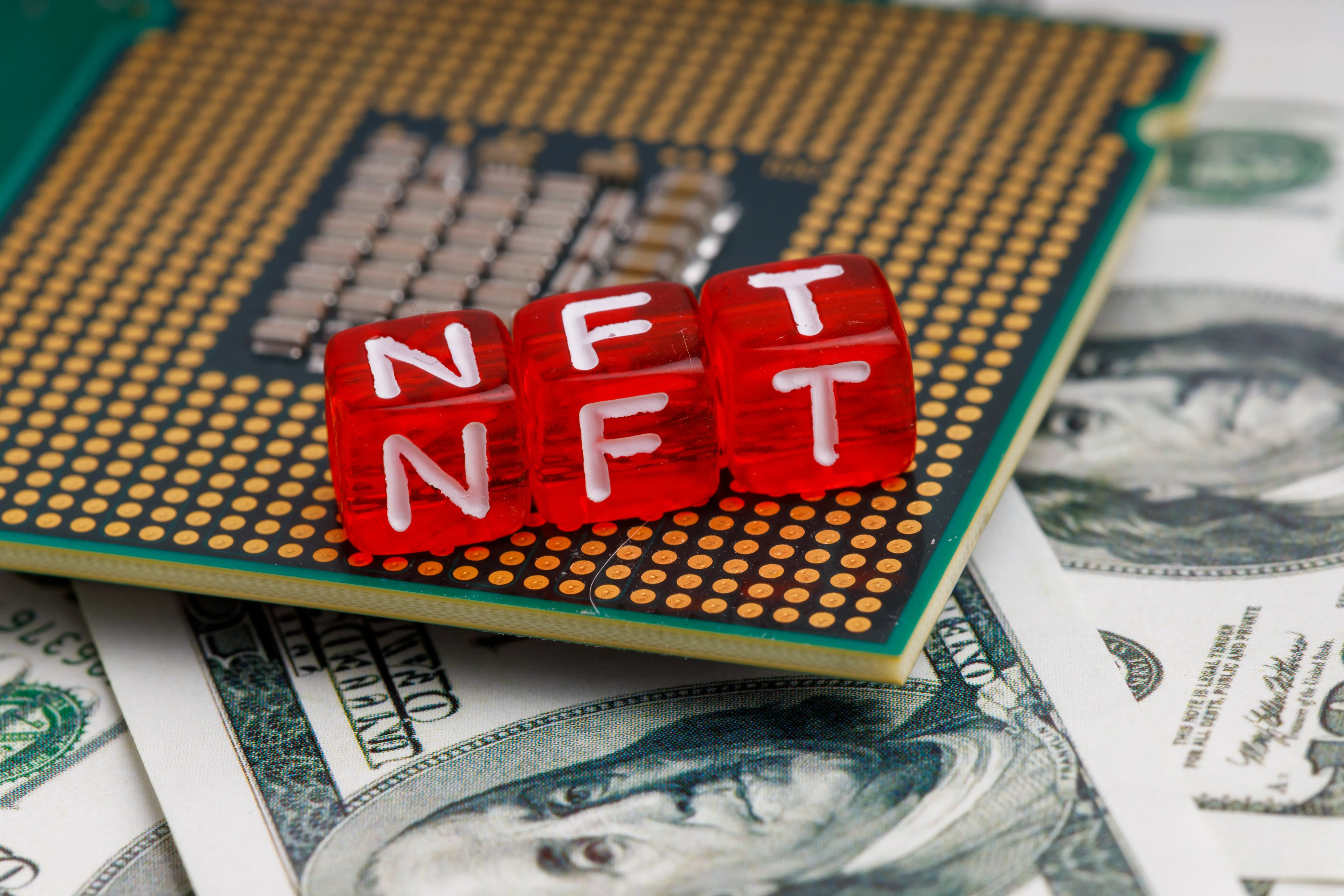
Are NFTs only recognized in the entertainment industry?
Mateusz Waligórski says: “Absolutely not. Imagine that you want to buy a second hand car. Would you be more trusting for a seller, who is merely describing a car on a traders website, or of someone who posted a car with an NFT which immediately showcases the state of the car, its mileage etc. Alpha Romeo has actually begun to sell cars with NFTs as a matter of course as it immediately increases the residual value.”
What do you look at when choosing an NFT project to invest in?
Sergiu Draganus, DAO Spark says: “Investors look at ROI which can be financial or a specific experience. The concept, team, community, technology this is what I look at.”
Mateusz Waligórski adds: “I am not an investor myself, but I suggest to first of all, look at the roadmap, the team behind the project, are they able to deliver? Also seek the projects that have a networking effect, this is important for the project scaling.”
Chris Perdek says: “I would also check who is the artist, what is his story of life? Does he want to experiment with new projects? Personally I would go with the blue chips.”
The Blockchain Gaming Industry
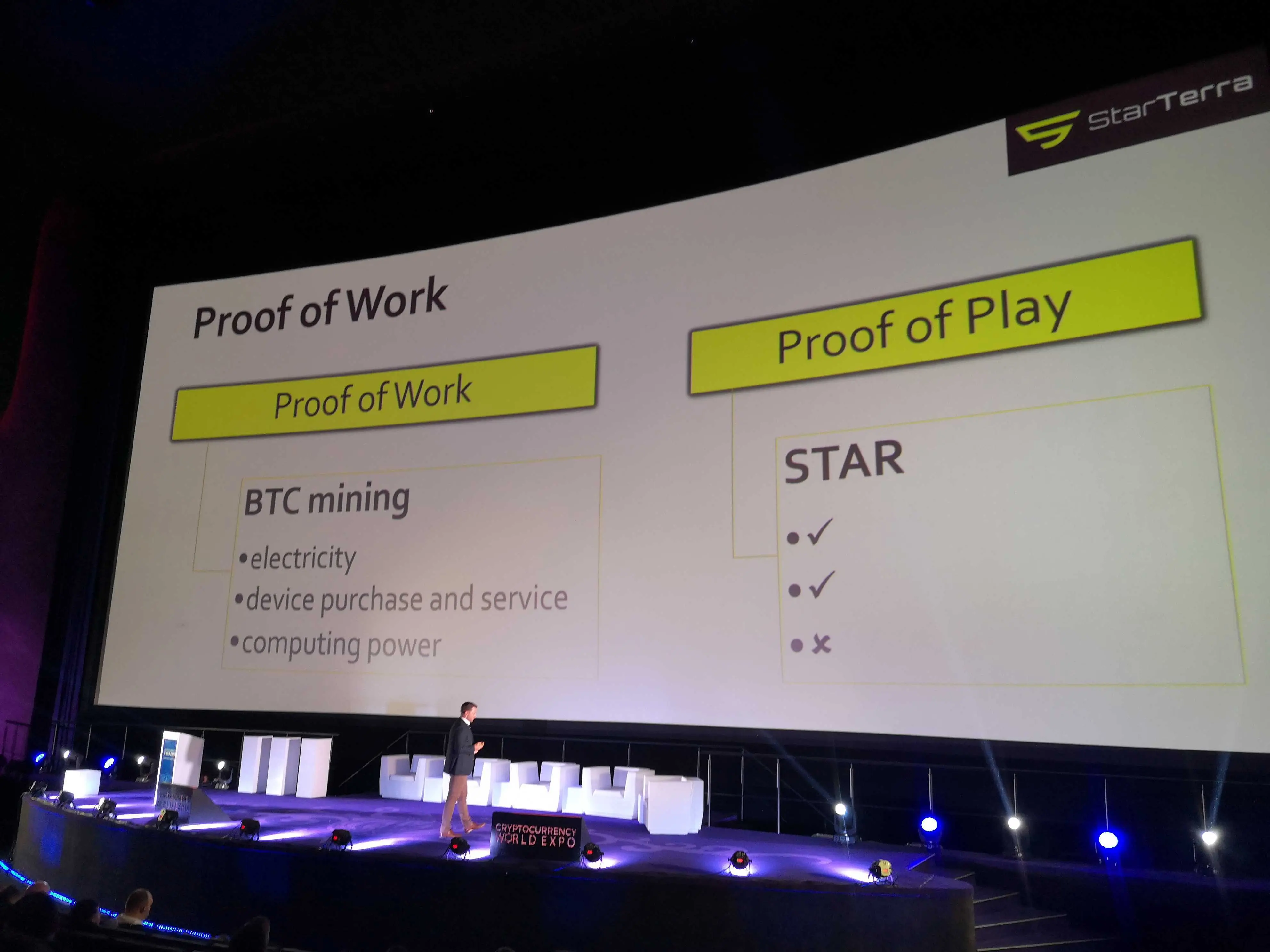
Several speakers mentioned Play-To-Earn (P2E) is all about leveraging the immutability of blockchain technology, game designers can create in-game items and rewards that are provably unique and transferable. Rewards can range from earning native digital currencies to collecting NFTs or be earned from staking.
Dominik Kowalewski from PlayNity talked about developing the first games in blockchain with dual token systems.
Thetan Arena enables you to play without investing any money. With a win ratio of 75%, it makes PlayNity the best guild on the market. Pegaxy is played via browsers, with an 87% of burn vs mint.
PlayNity created a guild via a recruitment process that starts with an application that includes an experience summary. PlayNity is the first to make the Play-To-Earn model accessible for everyone!
Wojtek Gruszka, CEO and Founder of StarTerra also talked about spreading the Play-To-Earn concept to the wider audience.
StarTerra is the first gamified launchpad with a unique combination of guaranteed based prize pools. Investment in the token is a central part of the ecosystem, enabling you to capture value from the products (StarTerra game) and StarTerra fundraising platform. The game is decentralized and you can create new tokens overnight.
It is an exciting time for the company also because they are just launching their NFT collection!
The Idea of a European Blockchain Platform and Gaia X
Jacek Figula from Billon discussed the two very important initiatives that are designed to bring about inter-country cooperation when it comes to blockchain.
The European Blockchain platform for multipurpose use - could be used for any exchange of tokens digitally between individuals in County A and institutions in Country B.
Gaia X - With Gaia-X, representatives from business, science and politics on an international level create a proposal for the next generation of data infrastructure: an open, transparent and secure digital ecosystem, where data and services can be made available, collated and shared in an environment of trust.
Public and Private Blockchains for Enterprise
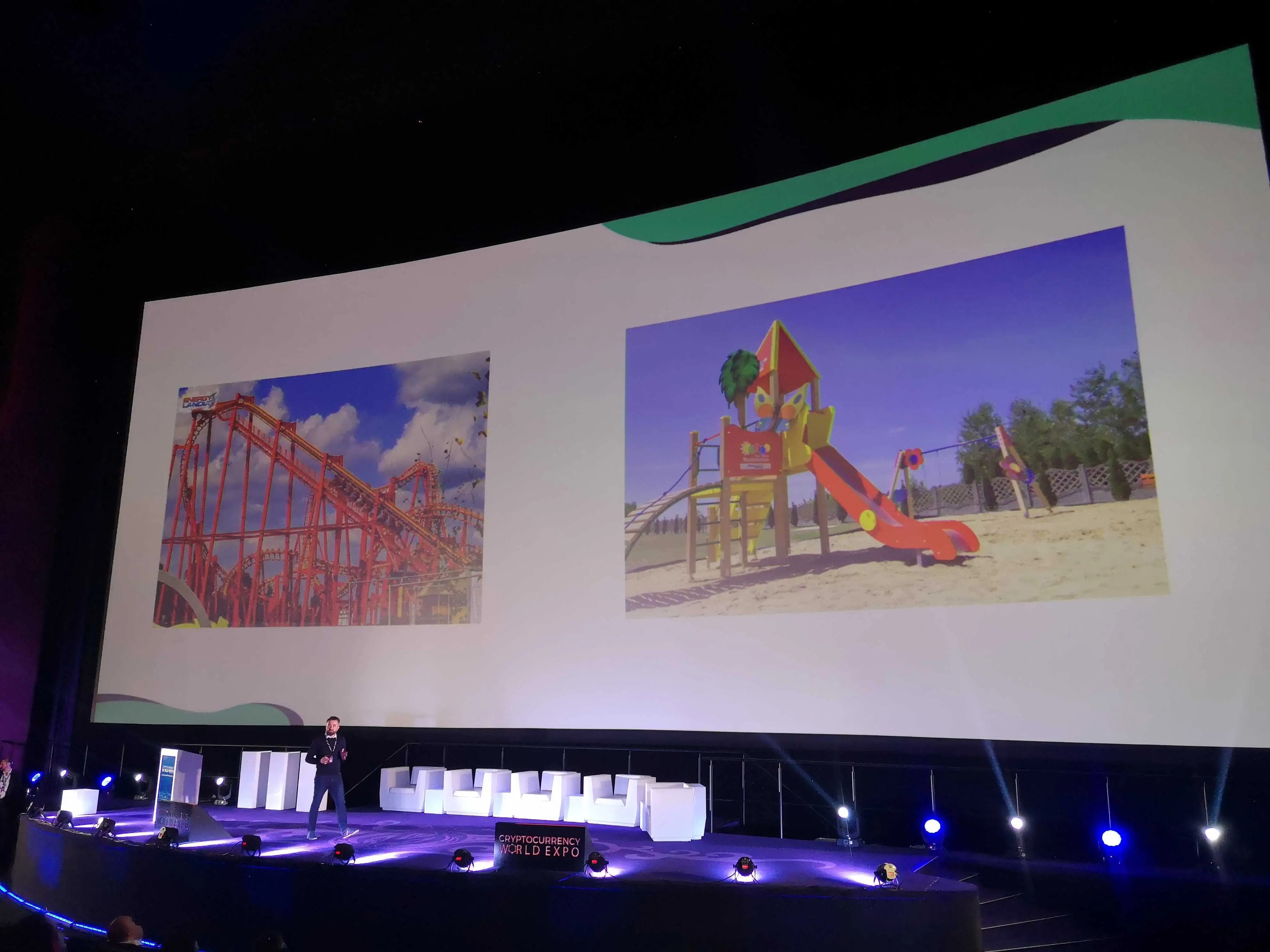
Marcin Rzetecki from Blockchain Polska talked about the adoption of Public and Private blockchains for businesses.
Blockchain can certainly be incorporated into your business processes in order to revolutionize the service that you deliver to your clients. One example is currency exchange. The common denominator for many parts of the world is access to the internet or access to mobile phones. That’s why blockchain can hold the answer to a lot of banking systems.
Here are just some of the benefits of public blockchain for business:
- Creating trust between different entities, where trust didn’t previously exist
- Their decentralized nature, with no central actor controlling things
- Improved security and privacy of transactions
- Reduced costs thanks to efficiencies in processing transactions.
Important things to consider when launching a crypto product
Łukasz Żeligowski from Kanga Exchange gave a useful summary of the questions that you should ask yourself if you’re looking to launch a new crypto product.
1. Why should anyone buy your token?
Make sure that you understand your target market. Are you going for crypto enthusiasts, or people who are entirely new to the world of crypto. Also, what is your USP? And therefore what is the motivation for investment?
How will you authenticate your profits? Make sure that you’re showing people how they might be able to make money. You have to make your project trustworthy. On the crypto market, you don’t talk about dividends, but you can show how you’re going to generate profits.
2. How will your target audience know about your project?
You’ll be surprised how many people have an awesome idea when it comes to tokenomics, but do absolutely no marketing.
It’s essential to have a well-considered marketing strategy. You have to let the world know that the project exists. Note that good marketing is not cheap. At the same time, spending a lot of money isn’t always effective and it’s a bit of a case of trial and error.
Meet your audience where they are. If your target audience is formed of people who are new to crypto, don’t use complex terms and make sure that you explain everything from the beginning. Twitter and Telegram are very popular in the crypto sphere.
3. How will you sell and distribute your product?
Are you going to use a centralized or decentralized platform? The choice of platform depends on your target market of course. But think about it carefully before you make a decision.
Make sure that you choose the right time for your marketing campaign. Remember to predefine which countries you would like to address and check that you’re launching at the right time of day for those countries (and their distinct time zones).
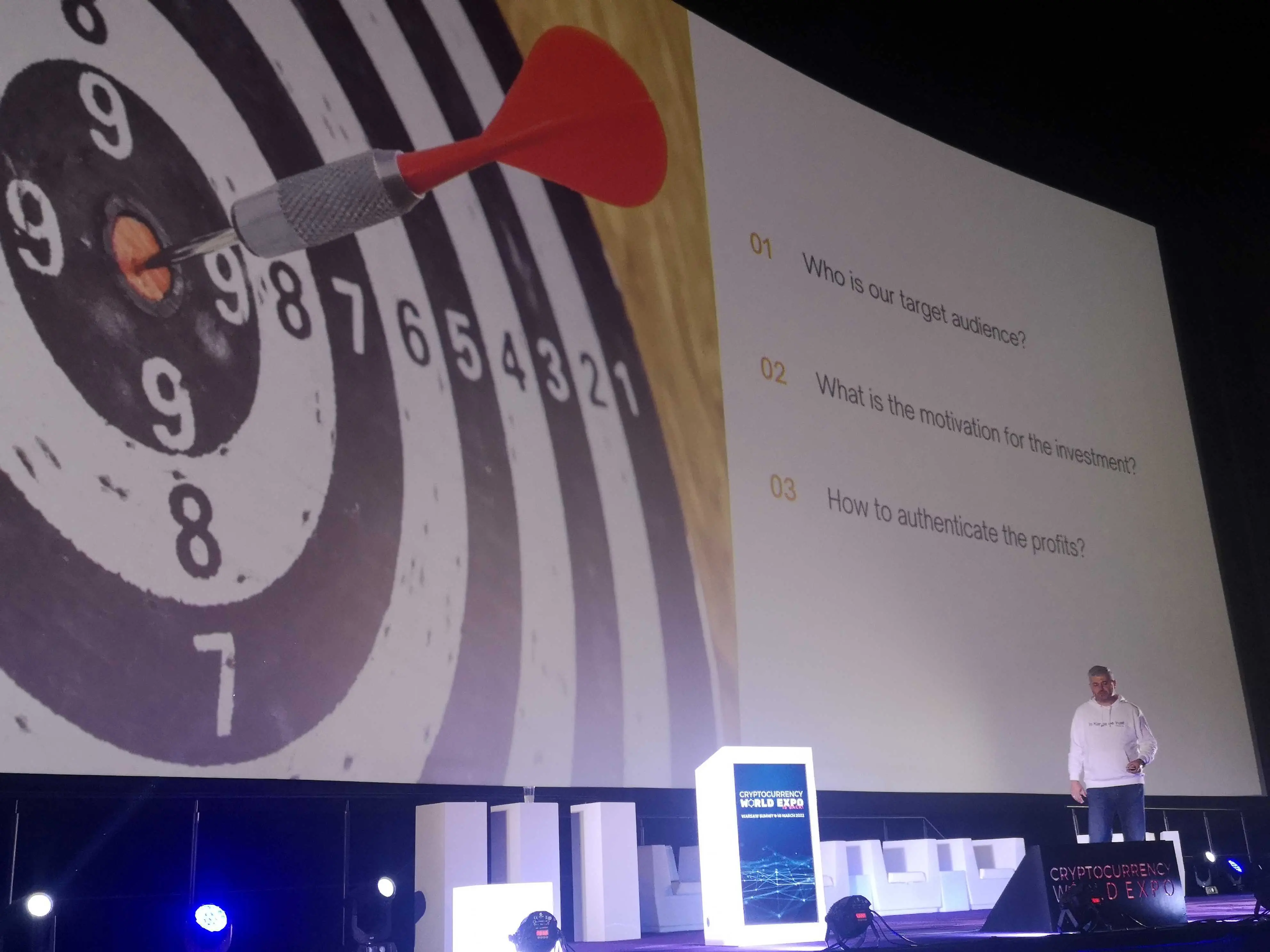
The Challenges of Getting Seed Funding for Blockchain Startups
Fundraising continues to be a hot topic and something that many blockchain startups struggle with. Here are the tips and insights offered by experts in the field.
Szymon Przybylski - ‘Raising funds means choosing proper VCs and Angel investors. You need to do your research into who you want to raise from. You want someone who will be a long-term support for your product, rather than a single cash injection. It’s not always easy to find good VCs.’
Raising funds means choosing proper VCs and Angel investors. You need to do your research into who you want to raise from. You want someone who will be a long-term support for your product, rather than a single cash injection. It’s not always easy to find good VCs.
Bartosz Pucek - ‘There’s a lot of money right now being fundraised by a lot of startups, but what’s missing is the problem-solving perspective. Many startups are not trying to solve new problems, and I think that’s the biggest mistake that a lot of founders are making.’
Miko Matsumura - ‘My biggest issue is that most founders don’t know how to pitch. Entrepreneurs see thousands of pitches, but they usually only make one. They want to be understood, and that’s a mistake in themselves. If you put a VC next to an entrepreneur, and they followed them for 10 years, they would probably still not understand what you do. What you really want is to create a simple if… then statement. That’s what you need to pay attention to. Keep it simple.’
Szymon Przybylski: ‘Raising money is hard work, we talk with 5 VCs a day and we are picky. We choose investors that will support your strategy vision. My mistakes were that I took too many VCs, instead of focusing on big VCs that give me value and will attract other significant investors. Another problem of many startups is that their CEOs overcomplicate their product, and don't have a clear USP.’
What is crypto banking?
Alphan Göğüş spoke about crypto banking, which refers to the managing of digital currency at any financial service or banking provider.
It offers:
- A new identity for traditional and neo banks
- A user-centric financial approach with crypto investors at its center
- A much more agile approach to banking
- A new direction, creating blockchain-based crowdfunding, tokenizing the assets and implementing crypto assets
DeFi protocols can help to increase speed and efficiency in banking, and remove the need for having headquarters. It also significantly increases the speed of cross-border transactions.
To date it is being widely used in the following areas:
- Brokerage
- Interest and Staking
- Crypto lending
- Crypto-fiat spending
There are some top companies such as CitiBank and UPS which have recently invested in crypto companies. All of this shows that we’re getting ready for the new era of finance.
So there you have it. Just some of the amazing things that we learnt over the course of two very busy days!

All in all we recommend the event, especially if you are an individual investor seeking for crypto opportunities or a startup founder looking for VC and hints on how to scale your business. For the 10Clouds Team the event brought the value of having a chance to meet many interesting, local companies offering products within the DeFI space. It is impressive to see the strong Polish brands such as gaming platforms, DEXes (decentralized exchanges) and NFT platforms. Also we met a few potential business partners and Blockchain media representatives, so it was a time well spent.

